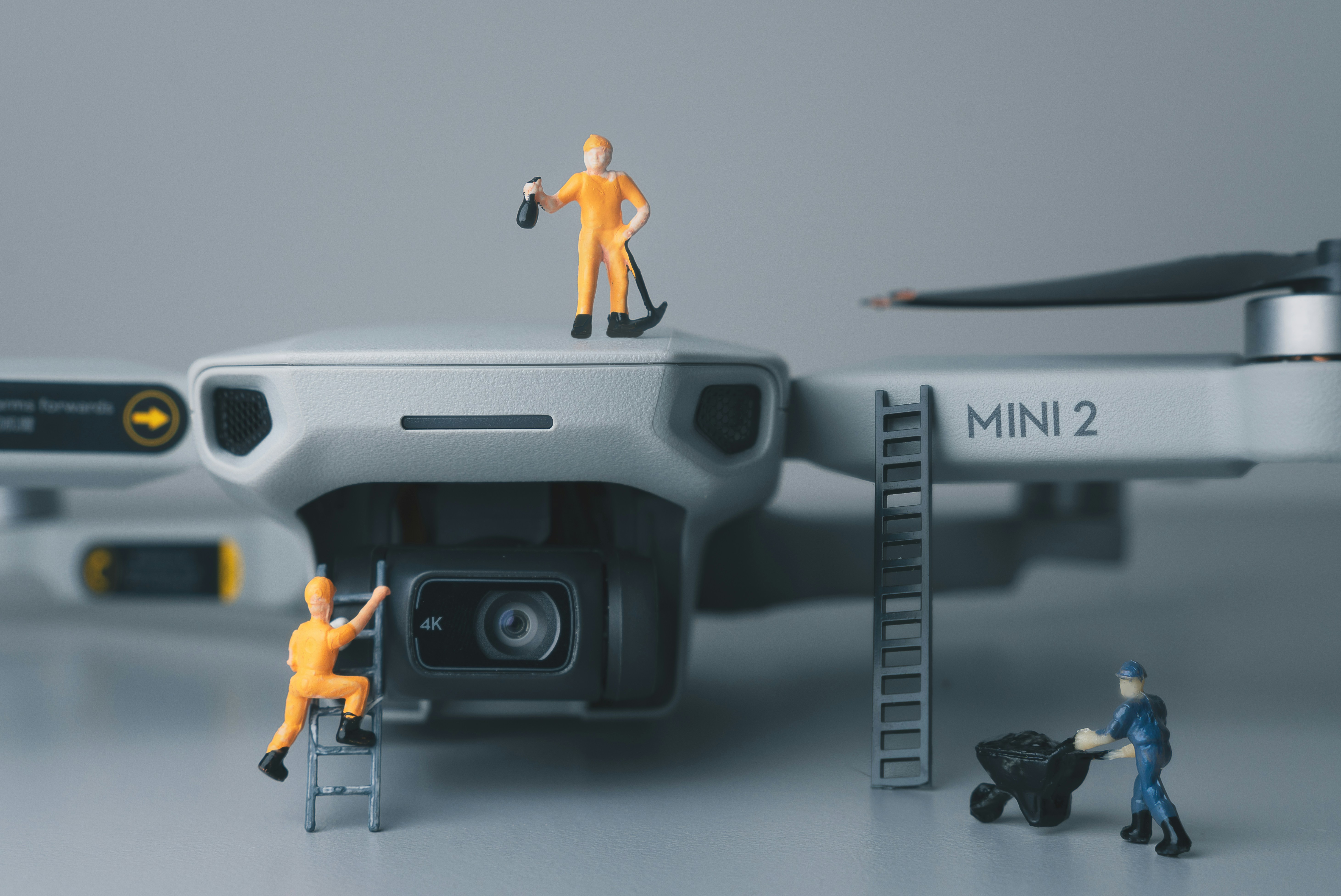
UK Police Drone Jobs: A Thriving Career in the Sky
In recent years, drones have transitioned from niche gadgets to essential tools across various industries. Among the most notable adopters of drone technology is the police force in the United Kingdom. Police drones, or Unmanned Aerial Vehicles (UAVs), have become invaluable in modern law enforcement, revolutionising how police handle tasks ranging from surveillance to search and rescue missions. As a result, the demand for skilled drone operators within the police force has surged, creating exciting career opportunities for those interested in this cutting-edge field. This article delves into the world of UK police drone jobs, exploring the roles, responsibilities, requirements, and future prospects of this dynamic career path.
The Rise of Drones in UK Policing
The adoption of drones by UK police forces has been swift and expansive. Since the first trial of UAVs by the Merseyside Police in 2010, the technology has quickly spread across the country. By 2020, over half of the UK’s police forces were using drones, with the number continuing to grow. This rapid adoption is driven by the numerous advantages drones offer, including cost-effectiveness, flexibility, and the ability to access difficult or dangerous locations.
Key Applications of Police Drones
Police drones are utilised in a wide range of operations, making them a versatile tool in law enforcement. Here are some of the primary applications:
Surveillance and Monitoring: Drones provide a bird’s-eye view of large areas, making them ideal for monitoring crowds during public events, protests, or demonstrations. They can also be used to gather intelligence in ongoing investigations, particularly in situations where ground surveillance is challenging or risky.
Search and Rescue: One of the most life-saving applications of police drones is in search and rescue missions. Drones equipped with thermal imaging cameras can quickly locate missing persons in challenging terrains, such as forests, mountains, or along coastlines, significantly improving the chances of a successful rescue.
Crime Scene Investigation: Drones offer a unique perspective for documenting crime scenes. High-resolution cameras can capture detailed images and videos, providing crucial evidence that can be analysed and used in court. This method is less intrusive and more comprehensive than traditional ground-based photography.
Traffic Management: Drones are increasingly being used to monitor traffic and manage road incidents. They can quickly assess the scene of an accident, helping to direct emergency services and manage the flow of traffic to minimise disruption.
Counter-Terrorism Operations: In high-risk situations, such as potential terrorist threats, drones can provide real-time intelligence without putting officers in harm’s way. They can be used to scout locations, monitor suspects, and even deliver tactical equipment if needed.
Environmental and Wildlife Protection: Some police forces use drones to monitor illegal activities that harm the environment, such as fly-tipping or illegal hunting. Drones can also assist in wildlife protection efforts by monitoring endangered species and their habitats.
Roles and Responsibilities in Police Drone Operations
A career in UK police drone operations offers a range of roles, each with distinct responsibilities. Whether you are interested in piloting the drones, maintaining them, or analysing the data they collect, there is likely a role that fits your skills and interests.
1. Drone Pilot
The most obvious role in police drone operations is that of the drone pilot. As a drone pilot, you are responsible for operating the UAVs during missions, ensuring that the drones are flown safely and effectively. Pilots must be skilled in navigating the drone, managing flight paths, and capturing the necessary footage or data.
Responsibilities:
Conducting pre-flight checks to ensure the drone is in proper working order.
Flying the drone according to mission objectives while adhering to safety protocols.
Operating cameras and other sensors on the drone to capture required data.
Coordinating with ground teams and other stakeholders during missions.
Managing battery life and flight duration to maximise efficiency.
Handling emergency situations, such as loss of signal or technical malfunctions.
2. Drone Technician
Drone technicians are responsible for the maintenance and repair of UAVs. This role is crucial for ensuring that the drones are always in optimal condition and ready for deployment. Technicians must have a strong understanding of drone mechanics, electronics, and software.
Responsibilities:
Performing routine maintenance on drones to prevent malfunctions.
Troubleshooting and repairing drones that have experienced issues.
Updating drone software and firmware to the latest versions.
Installing and testing new components, such as cameras or sensors.
Ensuring that all drones comply with relevant regulations and safety standards.
3. Data Analyst
A significant amount of data is collected during drone missions, particularly in surveillance and search operations. Data analysts are responsible for reviewing this information, identifying patterns, and providing actionable insights that can be used in ongoing investigations or to improve future operations.
Responsibilities:
Reviewing footage and images captured by drones.
Analysing thermal imaging data to identify persons or objects of interest.
Compiling reports based on data analysis for use in investigations or court cases.
Working with other departments to understand data needs and deliver relevant insights.
Keeping up-to-date with the latest data analysis tools and techniques.
4. Drone Coordinator
A drone coordinator is responsible for managing the deployment of drones within a police force. This role involves planning missions, coordinating with other departments, and ensuring that all drone operations are conducted safely and legally.
Responsibilities:
Planning and scheduling drone missions in coordination with other police units.
Ensuring that all drone operations comply with legal regulations and safety guidelines.
Managing the drone fleet, including allocating drones to different missions.
Liaising with external agencies, such as the Civil Aviation Authority (CAA), to obtain necessary permissions.
Training and supervising drone pilots and technicians.
Qualifications and Training for Police Drone Jobs
To pursue a career in police drone operations, certain qualifications and training are required. These vary depending on the specific role, but generally include a mix of formal education, technical skills, and certifications.
1. Basic Requirements
Age: Typically, you must be at least 18 years old to work in police drone operations.
Background Check: All police employees must pass a thorough background check. This includes a criminal record check and may also involve a security clearance process.
Physical Fitness: Some roles, particularly those that involve fieldwork, may require a certain level of physical fitness.
2. Educational Qualifications
While specific educational requirements can vary, most police drone jobs require at least a high school diploma (or equivalent). However, having a degree or diploma in a relevant field, such as engineering, computer science, or aviation, can be a significant advantage.
3. Drone-Specific Training
Remote Pilot Certificate (GVC): To legally operate drones for commercial purposes in the UK, including police work, you must obtain a General Visual Line of Sight Certificate (GVC). This certification is issued by the Civil Aviation Authority (CAA) and involves both a theoretical exam and a practical flight assessment.
Drone Operation Courses: Many organisations offer specialised training courses for drone operators. These courses cover topics such as flight safety, drone navigation, data collection, and legal compliance.
Continuous Professional Development (CPD): As drone technology and regulations are constantly evolving, ongoing training and professional development are essential. Many police forces provide opportunities for CPD to keep their drone teams up-to-date with the latest advancements.
4. Technical Skills
Depending on the role, certain technical skills may be required:
Piloting Skills: For drone pilots, excellent hand-eye coordination and spatial awareness are crucial. Familiarity with drone controls, flight dynamics, and navigation systems is essential.
Mechanical and Electronic Skills: Drone technicians need a strong understanding of drone hardware, including motors, sensors, and cameras. Skills in electronics and mechanics are essential for maintaining and repairing UAVs.
Data Analysis Skills: Data analysts must be proficient in data analysis tools and software. Knowledge of image and video analysis, as well as experience with data visualisation, can be particularly valuable.
5. Soft Skills
In addition to technical abilities, soft skills are also important in police drone jobs:
Communication: Clear communication is essential, especially during live operations where drone pilots need to coordinate with ground teams and other stakeholders.
Attention to Detail: Whether flying a drone or analysing data, attention to detail is crucial for ensuring accurate and effective operations.
Problem-Solving: Drone operations can be unpredictable, and the ability to think on your feet and solve problems quickly is invaluable.
Career Progression and Opportunities
A career in police drone operations offers numerous opportunities for progression. As the use of drones in policing continues to expand, so too do the possibilities for advancement and specialisation.
1. Advancement Opportunities
Senior Drone Pilot/Lead Pilot: With experience, drone pilots can advance to senior or lead pilot positions, where they are responsible for overseeing more complex missions and mentoring junior pilots.
Drone Operations Manager: For those interested in leadership roles, becoming a drone operations manager is a natural progression. This role involves overseeing the entire drone unit, including mission planning, coordination, and resource management.
Specialist Roles: As police drone technology evolves, new specialist roles may emerge. For example, experts in thermal imaging, counter-drone technology, or drone cybersecurity could become highly sought after.
2. Cross-Sector Opportunities
Experience in police drone operations can open doors to other sectors where drone expertise is valued. This includes industries such as private security, environmental monitoring, infrastructure inspection, and media production. Many of the skills developed in police drone roles, such as piloting, data analysis, and technical maintenance, are highly transferable.
3. Freelancing and Consulting
For those with significant experience and expertise, freelancing or consulting can be a lucrative career path. As the commercial use of drones continues to grow, many organisations seek experienced professionals to advise on drone strategy, train staff, or manage drone operations.
Challenges and Considerations
While a career in police drone operations can be exciting and rewarding, it is not without its challenges. Understanding these challenges is important for anyone considering this career path.
1. Regulatory Environment
The legal landscape surrounding drone use is complex and continually evolving. Drone operators must stay informed about current regulations and ensure compliance at all times. This includes understanding the rules set by the CAA, such as no-fly zones, altitude limits, and privacy laws.
2. Ethical Considerations
The use of drones, particularly in surveillance, raises important ethical questions. Police drone operators must balance the need for effective law enforcement with the rights to privacy and civil liberties. Ethical decision-making is a key part of the job, requiring operators to carefully consider the impact of their actions.
3. Technical Challenges
Drones are sophisticated pieces of technology, and technical issues can arise, often at critical moments. Whether it’s a hardware malfunction, software glitch, or environmental challenge (such as poor weather conditions), drone operators must be prepared to handle technical difficulties calmly and effectively.
4. Public Perception
The public’s perception of police drone use can vary. While many people recognise the benefits of drones for public safety, others may have concerns about privacy and the potential for misuse. Police forces often need to engage with the community to build trust and demonstrate the value of drones in law enforcement.
The Future of Police Drone Jobs in the UK
The future of police drone jobs in the UK looks promising, with continued growth and innovation on the horizon. As drone technology becomes more advanced, the range of applications in policing is likely to expand further, creating new roles and opportunities.
1. Technological Advancements
Emerging technologies, such as artificial intelligence (AI), machine learning, and autonomous drones, are set to revolutionise police drone operations. AI could enable drones to process data in real-time, identifying patterns and making decisions without human intervention. Autonomous drones, capable of flying pre-programmed routes or responding to incidents automatically, could further enhance the efficiency and effectiveness of police operations.
2. Integration with Other Technologies
The integration of drones with other technologies, such as body-worn cameras, facial recognition software, and real-time communication systems, could provide police with even more powerful tools for maintaining public safety. This integration could lead to the development of multi-disciplinary teams, where drone operators work closely with IT specialists, cybersecurity experts, and traditional law enforcement officers.
3. Expansion of Drone Teams
As the use of drones becomes more widespread, police forces may expand their drone teams, creating more jobs and opportunities for specialisation. This expansion could include dedicated roles for research and development, focused on exploring new ways to use drones in policing.
4. Public-Private Partnerships
The line between public and private sector drone use may blur, leading to more collaborations between police forces and private companies. These partnerships could involve sharing resources, technology, or expertise, further broadening the scope of police drone operations.
Conclusion
A career in UK police drone operations is an exciting and rapidly evolving field that offers numerous opportunities for those with the right skills and qualifications. From piloting drones in high-stakes operations to analysing critical data and ensuring the maintenance of cutting-edge technology, the roles available are as varied as they are vital. As drone technology continues to advance, the demand for skilled professionals in this area is set to grow, making it an excellent career choice for those interested in law enforcement and technology.
Whether you’re a seasoned drone operator or someone just starting out, the UK’s police drone sector offers a dynamic and rewarding career path. With the right training, qualifications, and a commitment to ongoing professional development, you could find yourself at the forefront of a revolution in policing, helping to keep communities safe from above.


